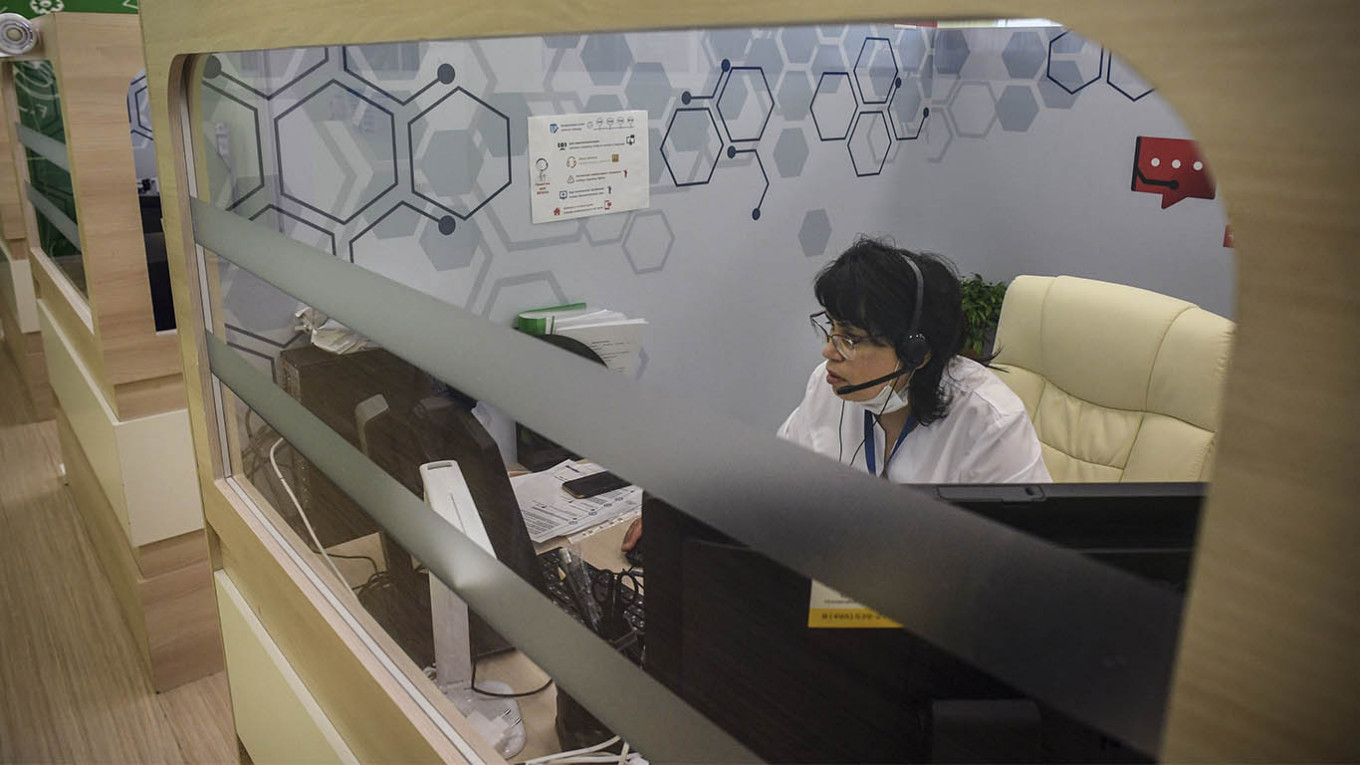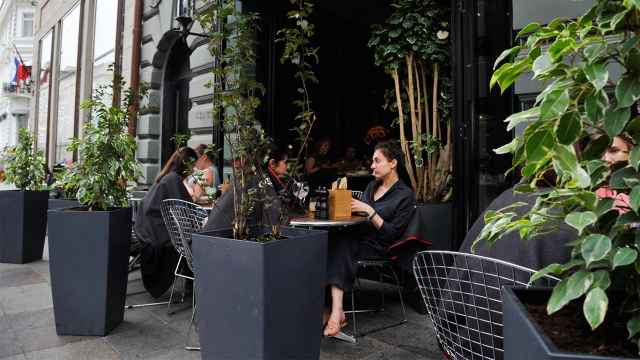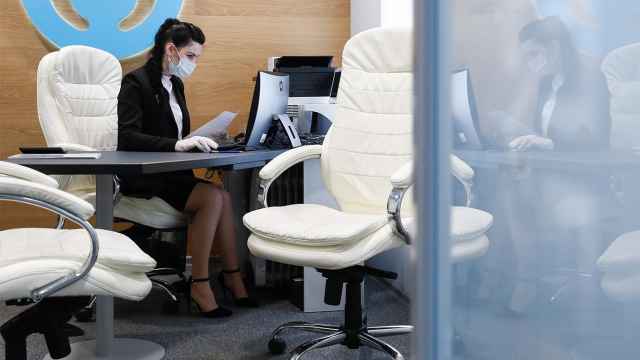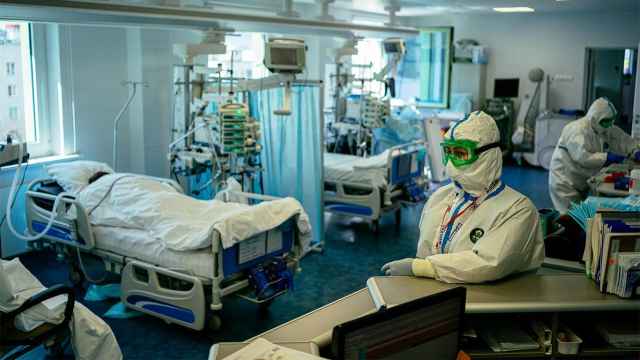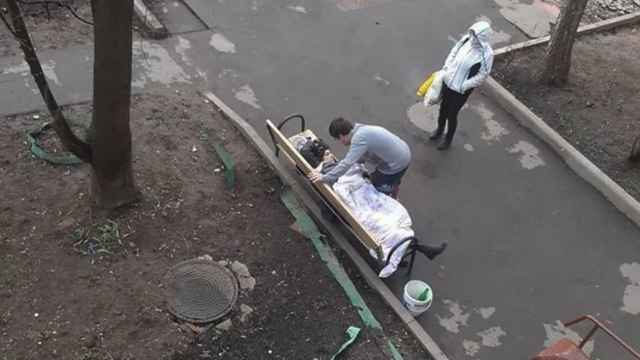A grey-haired Muscovite speaks via video link from his flat. Diagnosed with the coronavirus late last month, he tells a doctor he doesn't feel too bad but is still wheezing.
This is a consultation via Moscow's new telemedicine center, where doctors treat those who have tested positive but are well enough to stay at home.
They are monitored remotely by medical workers looking out for any signs of their condition deteriorating — the doctors call the patients regularly and the patients call in when they feel the need.
The young doctor taking the call, Sevana Mamedova, tells the patient he should call a doctor to his home to listen to his chest and check his lungs are clean.
The shiny new center in a huge school building was launched by the city government in Moscow -- the capital is the epicenter of Russia's outbreak.
Mayor Sergei Sobyanin has also led the swift construction of a dedicated hospital, which is due to open in two weeks.
In the pristine telemedicine center, white-coated doctors sit in cubicles gazing at screens and talking into headsets under a mural featuring British scientist Michael Faraday.
So far the number of calls is not that heavy.
"We are ready to increase our capacity," says chief doctor Andrei Tyazhelnikov, as cases in Russia grow daily.
On Wednesday the number of confirmed cases jumped by more 1,000 to reach 8,672, most of them in Moscow, with 63 deaths.
"The telemedicine center was created specially for patients with confirmed coronavirus infection whose condition allows them to be under observation at home," says the chief doctor, who headed a large clinic before the outbreak.
Some 200 doctors work at the center. Most are general practitioners, not virus specialists, but they are trained to use a precise script, Tyazhelnikov says.
Doctors are heard giving advice like drinking lots of liquids and airing rooms regularly.
The doctors include pediatricians who assess children with help from parents.
"Every day there are more of them," says pediatrician Yulia Yushantseva.
"This whole project was created ahead of time, well ahead, so that by the time there are a lot of calls, we will be able to deal with them quickly."
'People need our help'
Doctors say they can see more patients via video than through clinic appointments or home visits.
"I decided I would be more help here than sitting in a polyclinic," says Mamedova. "People need our help and I think we'll help more people this way."
All the patients have had an initial checkup by a doctor in person.
The main aim is to see whether they can continue as they are or if their symptoms are worsening and they need a doctor's visit or even hospitalization, the chief doctor says.
Video allows doctors to check factors such as skin color, an indicator of oxygen levels in the blood, he says.
"For us, the most concerning symptom is breathlessness," he says, since the virus can cause pneumonia.
In all cases where a doctor doing a video consultation decided the patient needed to go to hospital, their conclusion was proven correct, he says.
He says patients are generally happy to use the service since "it really is a good opportunity to talk to a doctor without any additional (physical) contacts."
Doctors work 12-hour shifts with breaks for rest and meals and the center is open 24 hours. Each consultation takes around 15 minutes and so far they have done more than 7,000.
A poster on the wall tells doctors to look "clean and tidy" and disinfect their work area three times a day.
One of the doctors, Lyudmila Berezkina, says that many using telemedicine are symptom-free but have tested positive for the coronavirus after being traced as a contact.
They have to provide two negative tests in a row before being taken off monitoring.
Moscow initially hospitalized even minor cases but hospital beds are now prioritized for people whose condition is serious.
Patients with mild symptoms are better off at home, Berezkina says.
"At home, the walls help you," she says, quoting a Russian saying.


